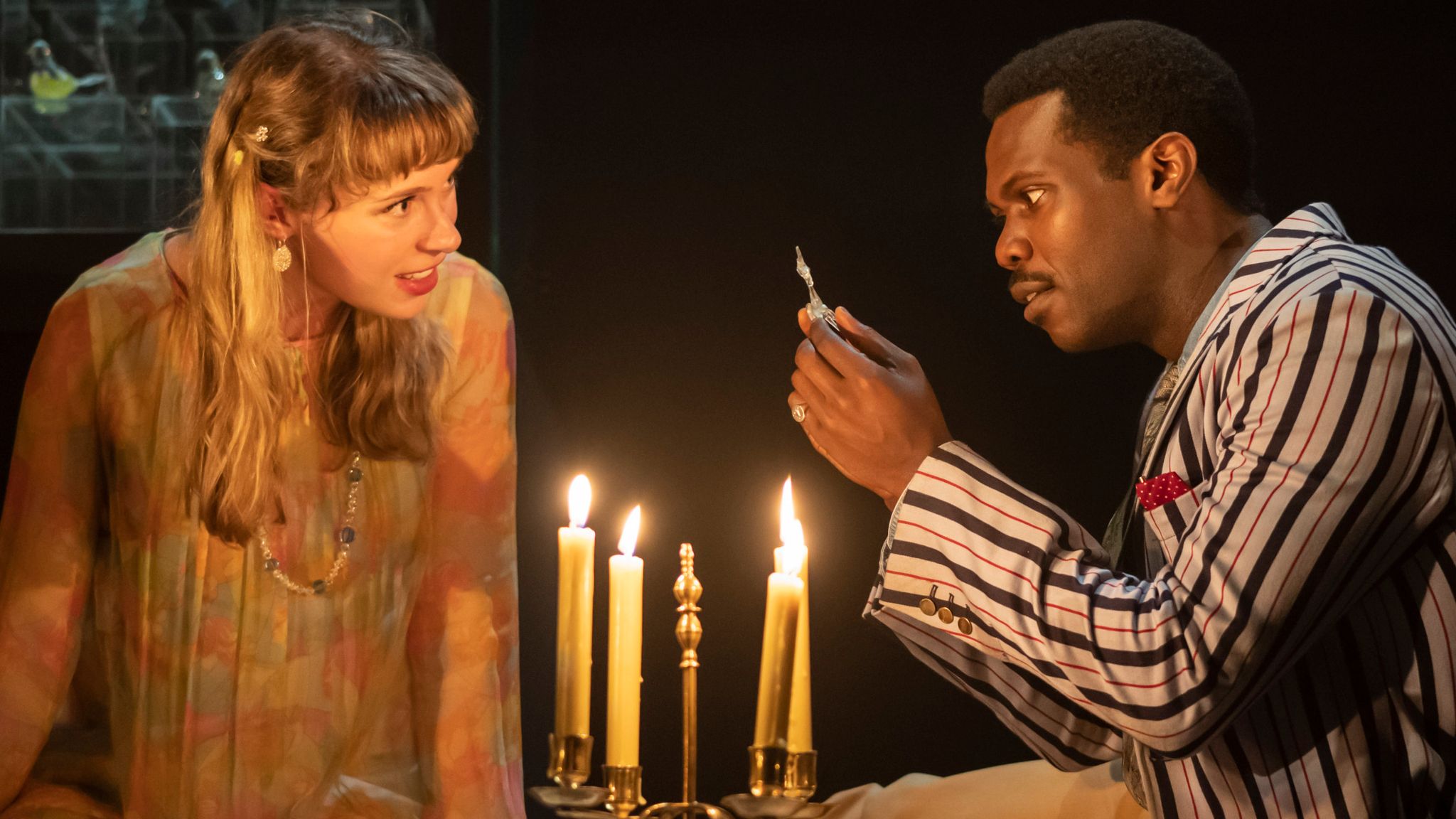
An electricity blackout leads to candlelit romance (beautiful lighting design by Paule Constable) and we are left feeling Laura’s dismay when the dream of a life with Jim beyond these four walls ebbs away. The play finally settles into intimacy as Jim casts his spell over Laura, whose own character comes alive. He is played compellingly by Victor Alli. The appearance of the “gentleman caller”, Jim O’Connor, brings a more emotionally engaged second half. Interestingly, where in Williams’s original script Amanda speaks nostalgically of servants and plantation men in the segregated deep south of her youth, all but one such reference has been excised.

They offer visual accompaniments – a soft focus typewriter appears in a scene about Laura’s business school typing course a crescent moon image is magnified when a sliver of moon is mentioned and the face of Amanda’s absconded husband emerges when the script speaks of his smiling photograph – but this signposting appears corny and over-literal. Neither do the giant back-screen projections work (video design by Ash J Woodward). Gentleman visitor … Lizzie Annis (Laura) and Victor Alli (Jim) in The Glass Menagerie. The glass menagerie itself is housed in a museum-sized glass vitrine and looks more like one of Damien Hirst’s trendy pharmacy cabinets than the collection of dinky glass animals in Williams’s text. This is in keeping with the drama’s meta-theatricality but renders the stage too starkly naked. Vicki Mortimer’s set is stripped of illusion and has its innards exposed, from the sound system to the spotlights. One of the biggest problems is the size of the stage, which looks vast and works against the intimacy of this story, leaving it feeling unfairly slight. There is better synergy in the mother-daughter relationship as Amanda warns Laura of the limited options for unmarried women and urges her to seek recourse in wedlock. Nor do we pick up on tenderness between siblings. But we do not feel the emotional weight of the latter’s decision to leave.

The play is pervaded by a sense of abandonment – first that of the absent father who has walked out on the Wingfield brood and then Tom’s own flight at the end. Annis’s Laura seems like a marginal character and Glynn-Carney’s Tom is fiery but for ever marching off stage in anger. The actors on the whole deliver their lines efficiently enough but the emotional centre is just not there.

Paul Hilton, as the narrator, plays the older Tom looking back, and is an enlivening force, even if he prowls around the stage without enough to do. Under the direction of Jeremy Herrin, the first half feels flat-footed and without Williams’s heady mix of yearning, passion and despair. Amanda is puzzlingly cheery and wholesome, initially unrecognisable as the faded southern belle from Mississippi who boasts of once having drawn 17 suitors in a single day.


 0 kommentar(er)
0 kommentar(er)
